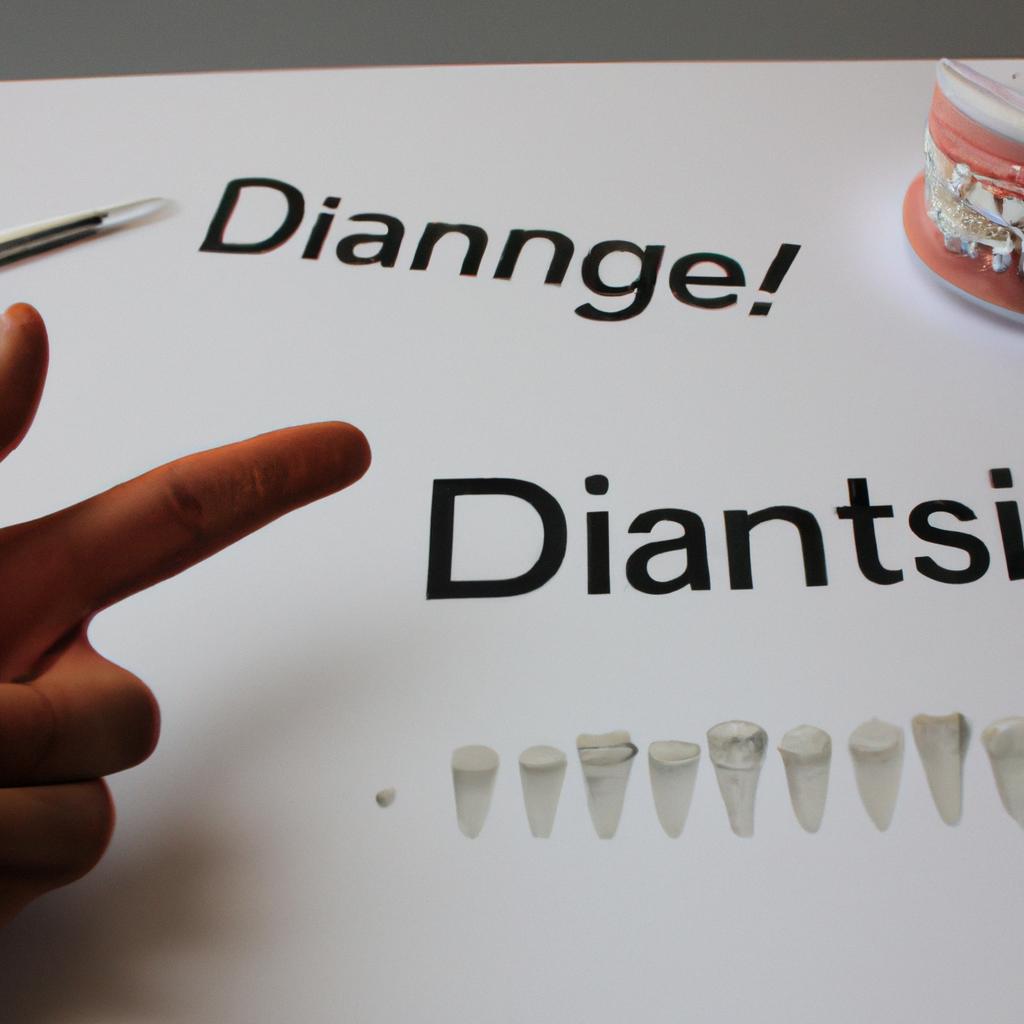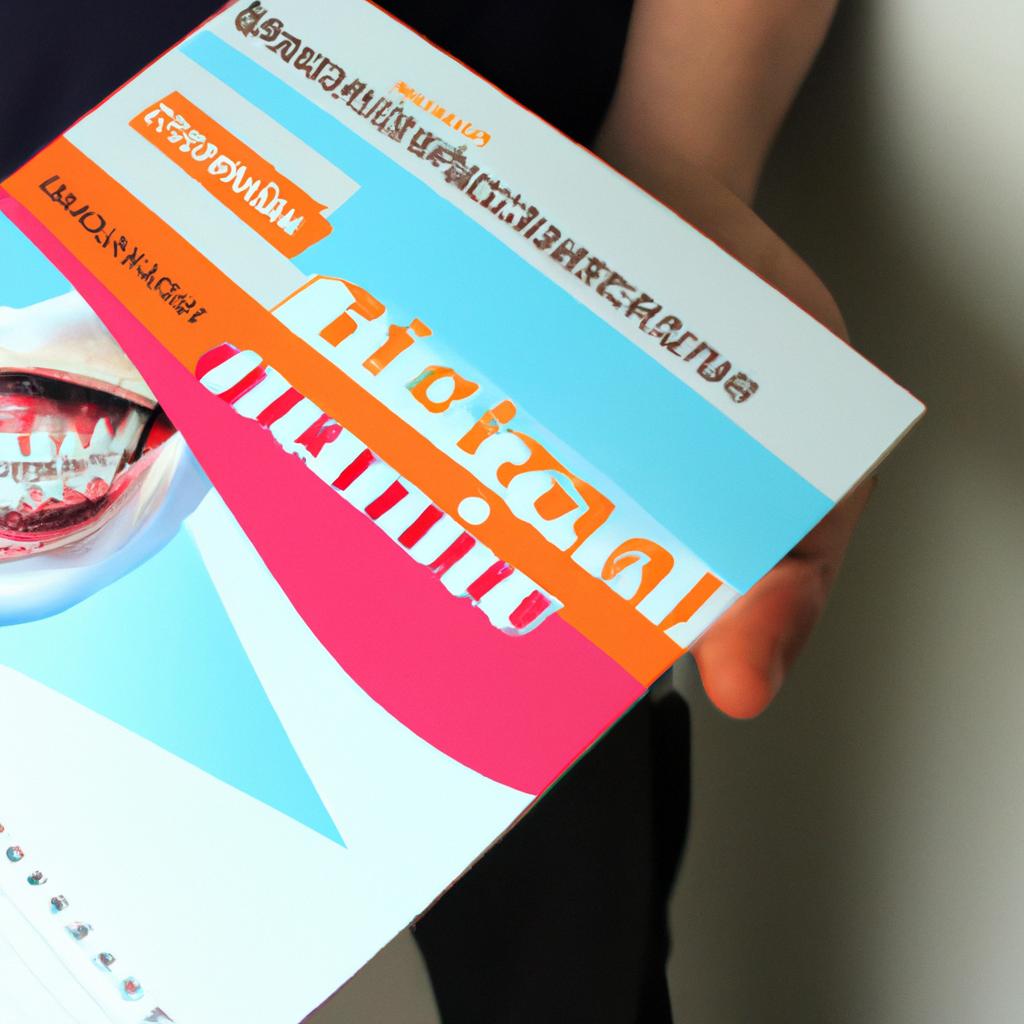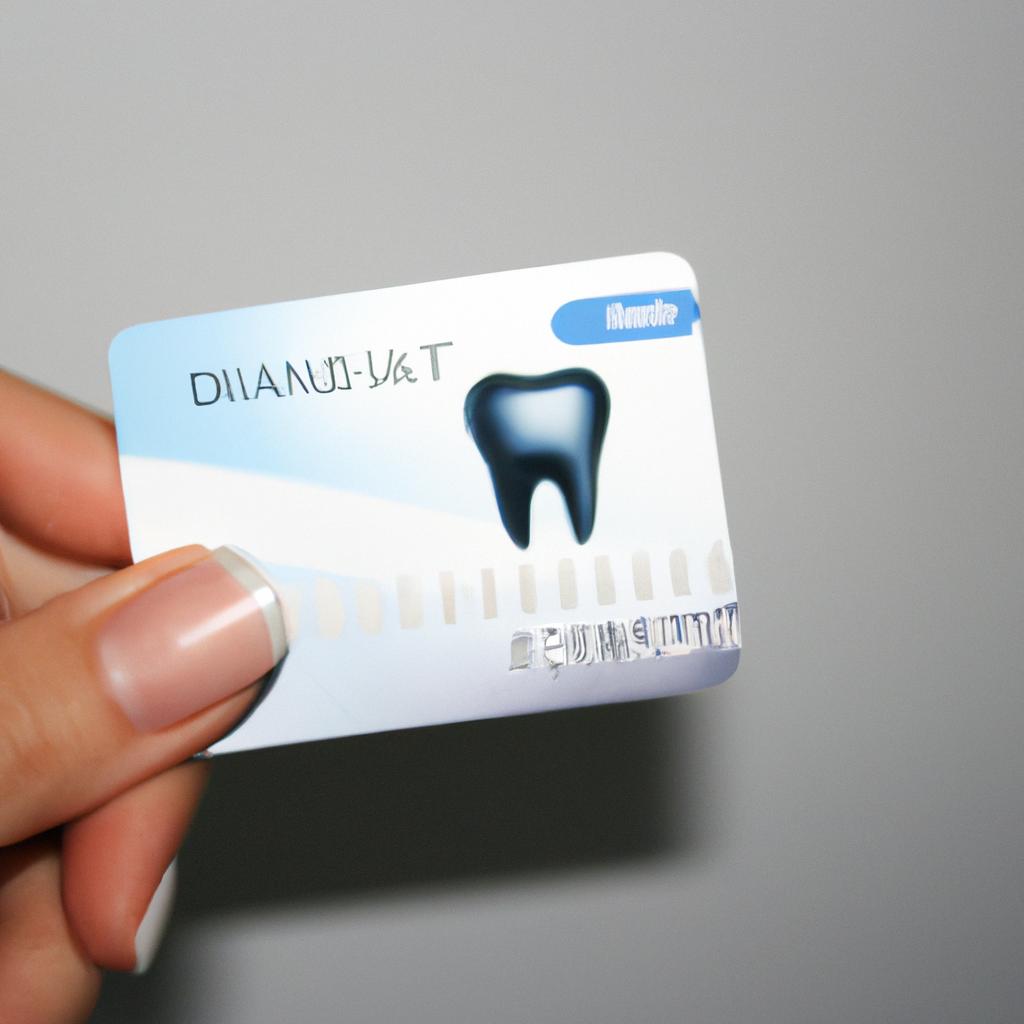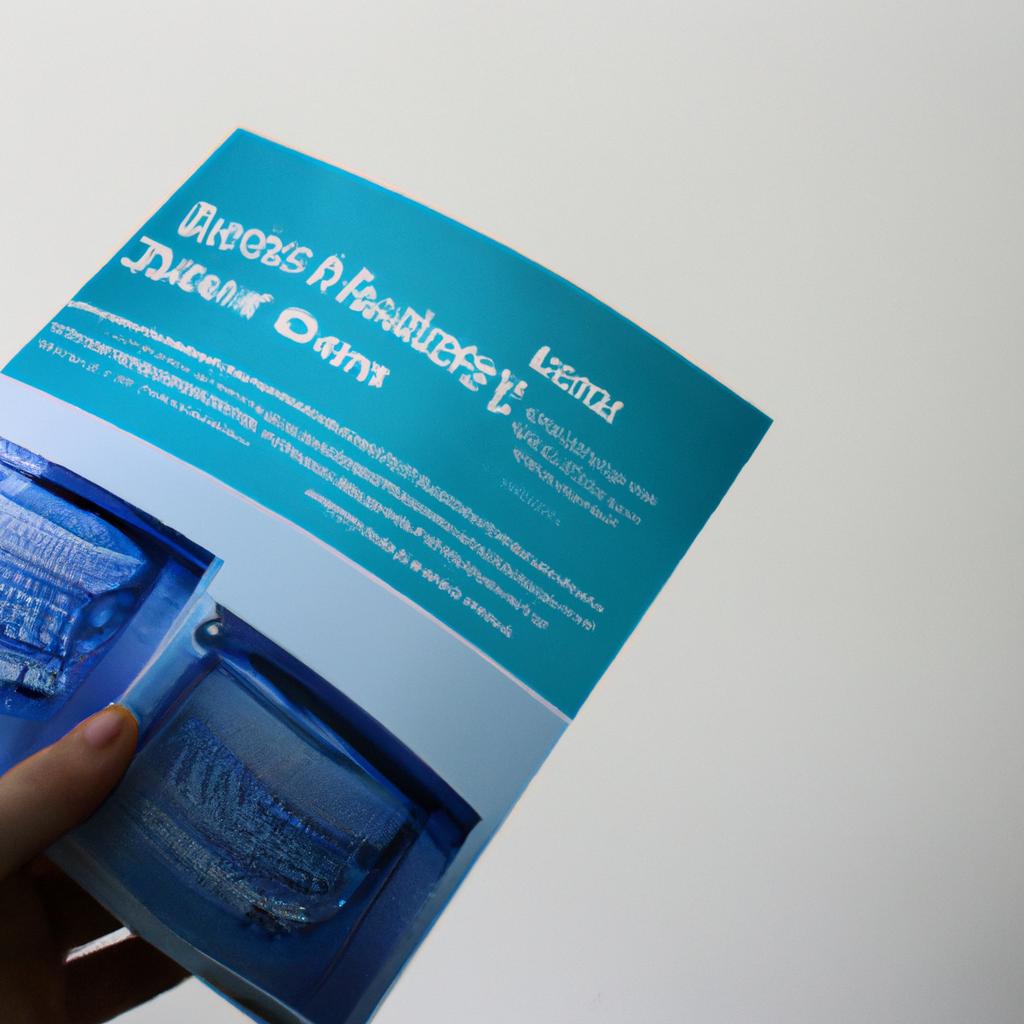Dental Financing in Dental Specialty: The Ultimate Guide
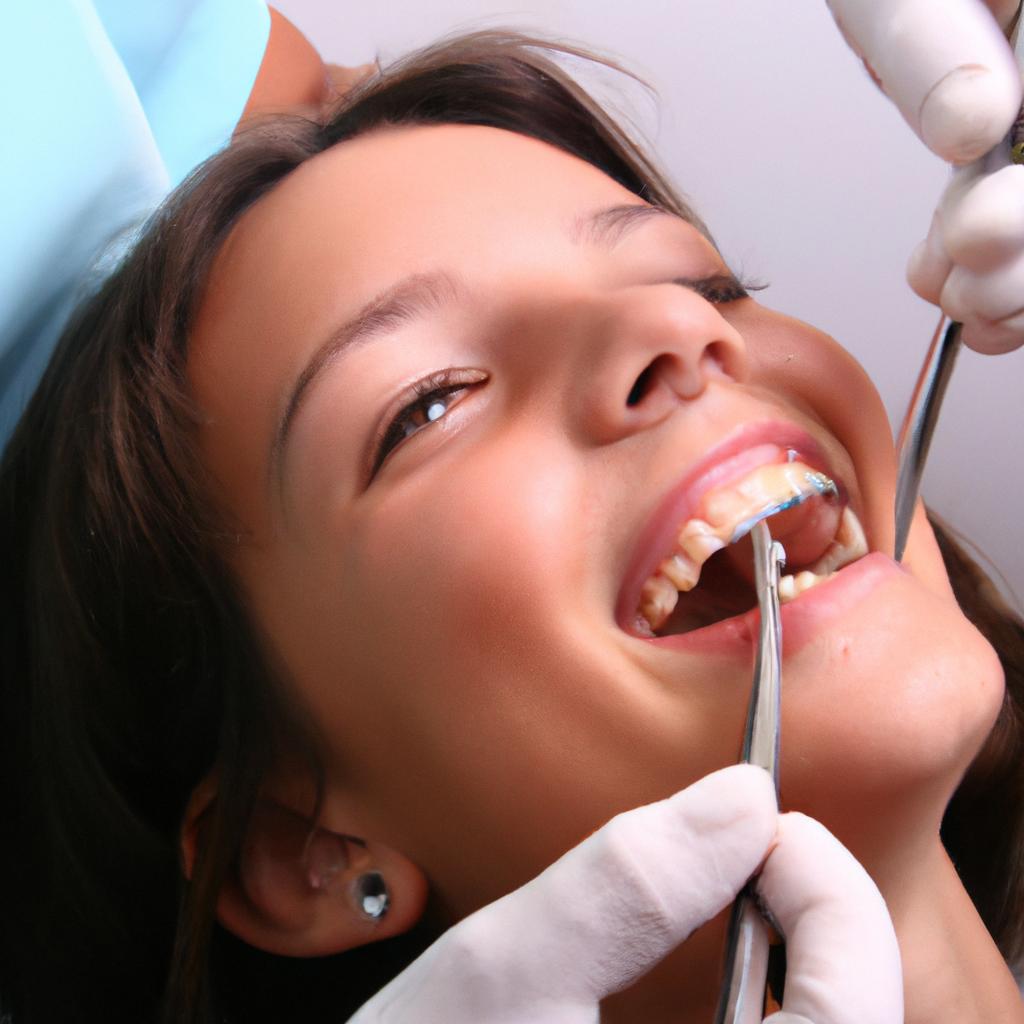
Dental care plays a crucial role in maintaining overall health and well-being. However, the cost of specialized dental treatments can often be prohibitively expensive for individuals seeking such services. For instance, consider the case of Mr. Smith, who required extensive orthodontic treatment to correct his misaligned teeth and improve his bite functionality. Despite understanding the importance of this procedure, he found himself grappling with financial constraints that hindered him from accessing necessary dental specialty care.
In light of these challenges, it is essential to explore potential avenues for individuals like Mr. Smith to overcome barriers associated with financing dental specialty treatments. This article aims to provide an ultimate guide on dental financing within the realm of dental specialty services. By delving into various options available to patients, including insurance plans, payment arrangements offered by providers, and third-party financing programs, readers will gain valuable insights into strategies they can employ to alleviate their financial burden while still receiving quality oral healthcare.
Option 1: Financing provided by dental clinics
Imagine this scenario: John, a hardworking individual with a family of four, recently discovered that he requires extensive dental treatment to address several oral health issues. However, the cost of these treatments is beyond his immediate financial means. In such situations, seeking financing options becomes essential to ensure access to necessary dental care. One option available to individuals like John is financing provided directly through dental clinics.
Financing Options Offered by Dental Clinics:
Dental clinics often provide their patients with various financing alternatives to accommodate their diverse needs and financial constraints. These options may include in-house payment plans or partnerships with external financing companies. By offering flexible payment plans, dental clinics aim to make high-quality dental care accessible and affordable for those who require it but lack the funds upfront.
To better understand the potential benefits of financing provided by dental clinics, consider the following bullet points:
- Interest-free installment plans tailored to suit patients’ budgets
- Accessible funding without requiring credit checks or collateral
- Convenient repayment schedules over an extended period
- Timely initiation of treatment without delays due to upfront costs
Table: A Comparison of Financing Options Provided by Dental Clinics
| Option | Advantages | Considerations |
|---|---|---|
| In-house Payment Plans | Flexibility in monthly installments | May have higher interest rates |
| Partnerships with External Firms | Lower interest rates | Credit check requirements |
| Extended repayment periods | Potential impact on credit scores |
By examining Table 1 above, we can see how different financing options offered by dental clinics offer distinct advantages while also presenting certain considerations. It is important for individuals like John to carefully evaluate each option based on their specific circumstances before making a decision regarding which plan suits them best.
Transitioning into the subsequent section about “Option 2: Credit options for dental treatments”:
Understanding the financing alternatives provided by dental clinics is crucial, but it is equally important to explore other potential avenues. In the following section, we will discuss an alternative option: credit options for dental treatments.
[Transition sentence]: Now that we have examined financing options offered directly through dental clinics, let us delve into another possibility – credit options specifically designed for dental treatments.
Option 2: Credit options for dental treatments
Imagine this scenario: Sarah, a hardworking individual with a passion for maintaining good oral health, recently discovered that she requires an extensive dental procedure. The estimated cost of the treatment is beyond her immediate financial means. In such situations, credit options can provide individuals like Sarah with the necessary funds to undergo essential dental treatments.
When considering credit options for dental treatments, it is crucial to assess various factors before making a decision. Here are some key considerations:
-
Interest Rates and Terms:
- Compare interest rates offered by different lending institutions or providers.
- Evaluate the terms and conditions associated with each credit option.
- Understand if there are any hidden fees or penalties for early repayment.
-
Credit History:
- Assess your credit score and history to determine eligibility for favorable loan terms.
- Seek advice from financial advisors or professionals who specialize in credit assessment.
-
Repayment Plans:
- Examine available repayment plans and choose one that aligns with your budget constraints.
- Ensure you have a clear understanding of installment amounts and payment schedules.
-
Additional Benefits:
- Look out for additional benefits such as deferred payments during certain periods or promotional offers provided by lenders.
Consider the following table showcasing potential credit options available for dental treatments:
| Lender | Interest Rate (%) | Loan Term (months) | Additional Benefits |
|---|---|---|---|
| Bank A | 5 | 24 | Deferred payments for first three months |
| Credit Union B | 7 | 36 | Lower interest rate on subsequent loans |
| Online Lender C | 9 | 48 | No prepayment penalty |
| Dental Financing Company D | 12 | 60 | Promotional offer: zero percent interest for first six months |
By carefully analyzing these factors and exploring credit options, individuals like Sarah can make informed decisions regarding dental financing. While credit options provide immediate access to funds for necessary treatments, it is essential to consider each option’s long-term financial implications.
Transitioning into the subsequent section about “Option 3: Savings plans for dental expenses,” individuals should also explore alternative methods of managing their dental costs without relying solely on credit. By incorporating savings plans, individuals can proactively prepare for future dental expenses while minimizing the need for external funding sources.
Option 3: Savings plans for dental expenses
Transitioning from the previous section on credit options for dental treatments, let us now explore another avenue to consider when it comes to financing your dental expenses. In addition to credit options, there are savings plans available specifically designed to help individuals cover their dental costs. To better illustrate this point, let’s delve into a hypothetical scenario:
Imagine Sarah, a 30-year-old professional with no dental insurance, finds out she requires extensive orthodontic treatment that will cost around $5,000. As Sarah evaluates her financial options, she discovers several savings plans tailored to assist individuals in paying for dental care.
Here are some key points to consider regarding these savings plans:
- Flexibility: Savings plans offer flexibility by allowing participants to choose the amount they wish to contribute regularly or on an irregular basis.
- Tax advantages: Some savings plans have tax benefits attached, enabling contributors to save money while preparing for future dental needs.
- Network of providers: Savings plans often come with a network of participating dentists who offer discounted rates exclusively for plan members.
- Additional family coverage: Many savings plans extend coverage not only to the individual but also include their immediate family members.
To further emphasize the potential benefits of such savings plans, here is a table showcasing a comparison between different options:
| Plan Name | Monthly Contribution | Annual Maximum Benefit | Dentist Network |
|---|---|---|---|
| SmileSaver | $50 | $1,500 | Nationwide |
| DentalPlus | $75 | Unlimited | Regional |
| OralCare | Flexible | None | Local |
As we can see from this example and the provided information above, savings plans can be an effective means of managing and reducing the burden of dental expenses. By contributing regularly or as needed, individuals like Sarah can benefit from discounted rates and potentially even tax advantages. Furthermore, having access to a network of dentists can provide peace of mind, knowing that quality dental care is readily available.
Transitioning to the next section on affordable dental plans with discounts, it is evident that exploring various financing options can help individuals make informed choices. Understanding different plans and their benefits empowers patients to take control of their dental health without feeling overwhelmed by financial constraints.
Option 4: Affordable dental plans with discounts
Imagine this scenario: Sarah, a working professional in her late twenties, has been diligently saving money every month to cover unexpected dental expenses. However, when she suddenly experiences severe tooth pain and visits the dentist, she realizes that her savings fall short of covering the cost of necessary treatment. This is where savings plans for dental expenses can provide crucial financial support.
Savings plans specifically designed for dental care offer individuals like Sarah an effective way to prepare for unforeseen oral health issues. These plans typically involve setting aside a certain amount each month into a dedicated account solely meant for dental expenses. By contributing regularly to such accounts, individuals can build up funds over time that are readily available when needed.
To understand how beneficial these savings plans can be, consider the following advantages:
- Peace of mind: With a dedicated fund reserved exclusively for dental costs, individuals have peace of mind knowing they are financially prepared should any oral health problem arise.
- Flexibility: Unlike insurance policies with strict coverage limits or waiting periods, savings plans allow participants to use their accumulated funds whenever they need them most.
- Cost-effectiveness: By actively saving money towards future dental treatments, patients may potentially reduce long-term costs by addressing minor issues before they escalate.
- Tax benefits: In some countries or regions, contributions made to specific healthcare savings accounts may qualify for tax deductions or exemptions, providing additional financial relief.
Here’s an example of how a typical savings plan might work:
| Month | Contribution Amount ($) | Total Savings ($) |
|---|---|---|
| January | 100 | 100 |
| February | 150 | 250 |
| March | – (no contribution) | 250 |
| April | 200 | 450 |
In this hypothetical case above, Sarah saves $100 in January and another $150 in February. However, she doesn’t contribute anything in March due to unexpected expenses. In April, she resumes her contributions and adds an additional $200, bringing her total savings to $450.
As Sarah’s example demonstrates, even with occasional breaks in contributions, a dedicated dental savings plan can provide individuals with a safety net when they need it most. By proactively saving for the future, patients can ensure that their oral health remains a priority without straining their immediate finances.
Transitioning into the subsequent section about “Option 5: Specialized credit cards for healthcare expenses,” individuals seeking alternative ways to finance their dental treatments may consider exploring specialized credit cards tailored specifically for healthcare needs.
Option 5: Specialized credit cards for healthcare expenses
In the previous section, we explored the option of affordable dental plans that offer discounted rates for various dental procedures. To further assist you in your search for suitable financing options, let’s delve into another alternative – specialized credit cards designed specifically for healthcare expenses.
Before diving into this topic, consider the following hypothetical scenario to understand the potential benefits and drawbacks of these Specialized Credit Cards:
Imagine Sarah, a young professional who requires extensive orthodontic treatment. She is looking for an affordable way to finance her dental procedures while ensuring quality care. After researching different options available to her, she comes across specialized credit cards tailored for healthcare expenses.
These specialized credit cards often come with unique features and perks that can be advantageous when it comes to funding dental treatments. Let’s explore some key aspects of these credit cards:
- Flexible Payment Options: Specialized credit cards may offer flexible payment terms that allow users to spread out their payments over time. This can ease financial burdens by dividing larger bills into more manageable monthly installments.
- Rewards Programs: Some healthcare-specific credit cards provide rewards or cashback programs specifically targeted towards medical expenses, including dental treatments. These incentives can help offset costs or accumulate points for future use.
- Dedicated Customer Support: Unlike traditional credit card providers, many healthcare-focused companies have dedicated customer support teams knowledgeable about medical billing practices and common issues faced during payment processes.
- Accessible Network Providers: Certain specialized credit cards partner with specific networks of dentists and specialists who offer discounted rates exclusively to cardholders. This enables individuals like Sarah to access quality care at reduced prices.
| Financing Option | Pros | Cons |
|---|---|---|
| Dental Insurance | Wide coverage network | May not cover all procedures |
| Personal Savings | No interest or fees | May deplete emergency funds |
| Affordable Dental Plans with Discounts | Reduced rates on procedures | Limited network of participating dentists |
| Specialized Credit Cards for Healthcare Expenses | Flexible payment options, rewards programs | High-interest rates, potential credit score impact |
In conclusion, specialized credit cards designed specifically for healthcare expenses can be a viable option to consider when financing dental treatments. With their unique features and benefits such as flexible payment options and rewards programs, these cards offer an alternative path towards affordable dental care.
Transitioning into our next section, we will now explore the sixth option available to individuals seeking financial assistance for dental procedures – loans tailored explicitly for dental needs.
Option 6: Loans tailored for dental procedures
Consider the following scenario: Sarah, a working professional in her thirties, recently visited an orthodontist due to concerns about her misaligned teeth. After receiving a comprehensive assessment and treatment plan, she realizes that the cost of the recommended dental procedure is beyond her immediate financial reach. In situations like this, loans specifically designed for dental procedures can provide individuals with the necessary funds to receive the care they need.
These specialized loans offer several advantages over traditional forms of financing. Firstly, they are specifically tailored to cover dental expenses, ensuring that patients have access to adequate funding without needing collateral or high credit scores. Secondly, these loans often come with flexible repayment options, allowing borrowers to choose terms that align with their budget and income levels. Additionally, some lenders may even offer promotional periods with deferred interest or low introductory rates.
Here are some key considerations when exploring loans tailored for dental procedures:
- Interest rates: It’s important to compare interest rates from different lenders as they can vary significantly. Opting for lower interest rates will help individuals save money in the long run.
- Repayment terms: Evaluate the available repayment plans and select one that best suits your financial situation. Longer-term plans may result in lower monthly payments but could also lead to higher overall costs due to accumulated interest.
- Loan amount limits: Determine if there are any limitations on loan amounts and ensure that it covers all anticipated dental expenses.
- Application process: Research various loan providers’ application processes and consider factors such as ease of application and turnaround time for approval.
To further illustrate how these loans can make quality dental care more accessible, let’s take a look at a hypothetical case study:
Case Study:
John requires extensive oral surgery estimated at $10,000. He decides to apply for a loan tailored for dental procedures rather than using his savings or other financing options. After researching different lenders offering competitive terms, he selects a loan with an interest rate of 7%, a repayment term of five years, and no prepayment penalties. By opting for this loan, John can break down his substantial dental expenses into manageable monthly payments while receiving the necessary treatment promptly.
In summary, loans tailored for dental procedures offer individuals like Sarah and John the opportunity to receive quality oral care without immediate financial constraints. These specialized financing options come with flexible terms, ensuring that borrowers can select repayment plans that align with their budgetary needs. However, it is crucial to consider interest rates, repayment terms, loan amount limits, and application processes when exploring these lending options.
Moving forward from considering loans tailored for dental procedures as a viable option, let’s delve into another alternative – Convenient payment plans offered directly at dental practices under Option 7: Convenient payment plans at dental practices.
Option 7: Convenient payment plans at dental practices
In today’s world, where the cost of dental procedures can be a burden on many individuals and families, loans tailored specifically for dental treatments have become an increasingly popular option. These loans provide patients with the necessary financial support to undergo essential dental work without having to worry about immediate out-of-pocket expenses. To illustrate this further, let us consider a hypothetical case study.
Imagine Sarah, a hardworking individual who has been struggling with severe tooth decay for quite some time now. She knows that she needs extensive dental treatment but is concerned about how she will afford it. Fortunately, Sarah discovers the option of obtaining a loan tailored for dental procedures. This avenue allows her to proceed with the necessary treatments immediately while providing her with manageable monthly repayment plans.
When considering whether a Loan tailored for dental procedures is the right choice, there are several key factors to keep in mind:
- Interest rates: Compare different lenders and their interest rates to ensure you select one offering reasonable terms.
- Loan amount: Consider your specific treatment needs and choose a loan that covers all associated costs adequately.
- Repayment period: Evaluate repayment options offered by various lenders, weighing them against your financial capabilities.
- Flexibility: Look for loans that offer flexibility in terms of early repayments or adjustments if needed.
To better understand these considerations, refer to the table below which summarizes the key features of three different lending institutions currently providing loans designed explicitly for dental treatments:
| Lender | Interest Rate (%) | Maximum Loan Amount ($) | Repayment Period (months) |
|---|---|---|---|
| Bank A | 7.5 | 10,000 | 36 |
| Credit B | 9.2 | 15,000 | 48 |
| Finance C | 12.1 | 20,000 | 60 |
As we can see from the case study and considerations above, loans tailored for dental procedures offer individuals like Sarah an opportunity to receive essential dental care without undue financial burden. These loans provide manageable repayment plans while allowing patients to address their oral health needs promptly. Now let’s explore another financing option available: convenient payment plans at dental practices.
[Transition sentence] Moving on from loans tailored for dental procedures, another viable option worth considering is the availability of convenient payment plans directly offered by dental practices themselves. This alternative allows patients to pay off their treatment costs over time without needing external financing through banks or lenders.
Option 8: Flexible credit options for dental care
Option 8: Flexible credit options for dental care
When it comes to financing dental treatments, patients have various options available to them. In addition to convenient payment plans offered by dental practices, another viable option is flexible credit solutions specifically designed for dental care expenses. These credit options allow individuals to spread out the cost of their treatment over time, making it more manageable and accessible. Let’s explore this option further through a hypothetical case study.
Imagine Sarah, a young professional in need of extensive orthodontic work. She requires braces but is concerned about the upfront costs associated with such treatment. Fortunately, she discovers that many dental financing companies offer flexible credit options tailored to her needs. Here are some key features of these programs:
- No annual fees or prepayment penalties.
- Low-interest rates compared to traditional credit cards.
- Extended repayment periods ranging from 6 months up to several years.
- Easy online application process with quick approval decisions.
To better understand the benefits of flexible credit options for dental care, consider the following table showcasing a comparison between traditional credit cards and specialized dental credit providers:
| Features | Traditional Credit Cards | Dental Credit Providers |
|---|---|---|
| Annual Fee | Yes | No |
| Interest Rate | Higher | Lower |
| Repayment Period | Shorter term | Longer term |
| Application Speed | Slower | Faster |
As seen in the table above, dental credit providers eliminate certain drawbacks commonly associated with traditional credit cards when used for healthcare expenses. This alternative ensures that patients can access necessary treatments without being burdened by excessive fees and high interest rates while providing longer repayment periods for added convenience.
In summary, flexible credit options present an attractive solution for individuals seeking financial assistance for their dental care needs. By offering low-interest rates, extended repayment periods, and a streamlined application process, these credit programs alleviate the financial strain associated with upfront dental expenses. Now let’s explore another option that can help patients reduce their overall costs: membership plans for reduced dental fees.
Option 9: Membership plans for reduced dental costs
Option 8: Flexible Credit Options for Dental Care
Now, let’s explore another option that can help make dental treatment more affordable and accessible.
Imagine you need extensive dental work but are unable to pay for it upfront. This is where flexible credit options come into play. They allow you to spread out the cost of your treatment over a period of time, making it easier on your budget. For instance, let’s consider a hypothetical case study:
Sarah has been dealing with severe tooth pain for quite some time now. After consulting with her dentist, she learns that she needs multiple root canal treatments as well as several crowns. The estimated cost of her treatment is $5,000 – an amount she cannot afford all at once.
To alleviate Sarah’s financial burden while still receiving necessary dental care, her dentist offers her a flexible credit option through a reputable healthcare financing company. With this option, Sarah can divide the total cost into manageable monthly payments over a set period of time.
Flexible credit options provide numerous benefits for individuals seeking dental care. Here are some key advantages worth considering:
- Convenience: By spreading out the cost of treatment, patients can receive timely care without placing excessive strain on their finances.
- Affordability: Monthly payment plans make expensive procedures more manageable by breaking them down into smaller increments.
- Accessibility: Flexible credit options open doors for those who may not have insurance or sufficient savings to cover their dental expenses.
- Peace of mind: Knowing that there is a structured plan in place helps reduce stress and allows patients to focus on their oral health.
Let us now move forward and explore another alternative method to make quality dental care more affordable – membership plans for reduced dental costs.
| Pros | Cons | Considerations |
|---|---|---|
| Affordable monthly payments | Interest rates may apply | Read terms and conditions carefully |
| No need for insurance coverage | May require a credit check | Ensure the financing company is reputable |
| Accessible to individuals with limited savings or low income | Potential impact on credit score | Evaluate your ability to make monthly payments |
| Provides peace of mind | Additional fees for late payments | Seek guidance from dental professionals |
In this section, we explored flexible credit options as an alternative method to finance dental care. These options offer convenience, affordability, accessibility, and peace of mind for patients seeking treatment. However, there are also considerations such as interest rates and potential impact on credit scores that should be taken into account. Now let’s delve into membership plans for reduced dental costs in our next section – Option 9: Membership Plans for Reduced Dental Costs.
Option 10: Payment alternatives for dental services
Imagine this scenario: you have just completed a comprehensive dental examination, only to be informed that you require an expensive dental procedure. The cost of the treatment is way beyond what your insurance can cover, and you begin to worry about how to afford it. In such situations, exploring payment alternatives for dental services becomes crucial.
There are several options available to help individuals manage the financial burden associated with dental treatments. These alternatives not only provide flexibility in payment but also ensure that necessary oral care is accessible to everyone. Let’s explore some of these options:
-
Dental Financing Programs: Many dental practices offer financing programs specifically designed to assist patients in paying for their treatments over time. These programs often come with low-interest rates or even interest-free periods, providing a convenient way to divide the cost of treatment into manageable monthly payments.
-
Medical Credit Cards: Some credit card companies offer medical-specific credit cards that can be used exclusively for healthcare expenses, including dental treatments. These cards may provide promotional financing offers or rewards points that can be redeemed towards future procedures.
-
Personal Loans: Taking out a personal loan from a bank or online lender is another option worth considering. With a personal loan, you can receive a lump sum amount upfront and repay it through fixed monthly installments over a predetermined period of time. It provides flexibility as it allows you to choose repayment terms that suit your budget.
-
Healthcare Savings Accounts (HSAs) or Flexible Spending Accounts (FSAs): If you have an HSA or FSA account set up, you can use funds from these accounts to pay for eligible dental expenses tax-free. HSAs are typically offered alongside high-deductible health plans, while FSAs are employer-sponsored benefit accounts where employees contribute pre-tax dollars towards qualified medical expenses.
These payment alternatives alleviate the immediate financial strain by spreading out the costs and allowing individuals to prioritize their oral health without compromising their budget. By exploring these options, individuals can make informed decisions that align with their financial circumstances.
Option 11: Financing solutions offered by dentists further expands on the various financing solutions provided directly by dental professionals, ensuring that patients have access to comprehensive information about affordable payment methods in the realm of dentistry.
Option 11: Financing solutions offered by dentists
To address the financial concerns of patients seeking dental treatments, many dentists now offer various financing solutions. These options can help individuals cover the costs of their dental procedures without having to worry about immediate payment. Let’s explore some common financing alternatives that are often provided by dentists.
One example is a case where a patient requires orthodontic treatment to correct misaligned teeth. The total cost for this procedure may be substantial and difficult to pay upfront. However, through the financing option offered by their dentist, the patient can break down the payments into manageable monthly installments over a specified period.
When it comes to financing solutions in dental practices, there are several possibilities available:
- In-house financing plans: Some dentists offer their own in-house financing plans aimed at helping patients afford necessary treatments.
- Third-party medical credit cards: These specialized credit cards allow patients to finance their dental expenses conveniently.
- Personal loans from banks or online lenders: Patients have the option to secure personal loans from financial institutions or online lenders specifically tailored for healthcare needs.
- Dental savings plans: Similar to insurance, these plans require an annual fee and provide discounts on various dental services.
These different options provide flexibility for patients who otherwise might not be able to receive essential oral care due to financial constraints. To further illustrate how these financing solutions benefit individuals seeking dental treatments, consider the following table showcasing potential advantages they could experience:
| Benefits | Financing Solutions |
|---|---|
| Lower Financial Burden | Monthly Installments |
| Accessible Treatment | Immediate Care |
| Budget Management | Fixed Interest Rates |
| Increased Affordability | Extended Payment Terms |
As we can see, these financing solutions alleviate the burden of hefty upfront costs while ensuring accessibility and budget management for patients. By offering flexible payment arrangements with fixed interest rates and extended terms, dentists provide individuals with the opportunity to receive necessary dental treatments without compromising their financial well-being.
Transitioning into the subsequent section about “Option 12: Affordable options for dental treatments,” it is essential to explore additional alternatives that can help patients find cost-effective ways to address their dental needs. By considering various affordable options, individuals can make informed decisions regarding their oral health while keeping their budget in mind.
Option 12: Affordable options for dental treatments
Option 12: Affordable Options for Dental Treatments
Consider the case of Mr. Johnson, a middle-aged individual who recently visited his dentist for a routine check-up. During the examination, it was discovered that he required extensive dental treatment, including multiple fillings and a root canal procedure. However, Mr. Johnson had concerns about the cost of these treatments and wondered if there were any affordable options available to him.
Fortunately, there are several avenues that individuals like Mr. Johnson can explore to make dental treatments more accessible and affordable:
- Dental Savings Plans: These plans function similarly to insurance but without the monthly premiums or deductibles. Instead, members pay an annual fee in exchange for discounts on various dental procedures provided by participating dentists.
- Financing through Dentist Offices: Many dental practices offer flexible financing options to patients who require expensive treatments but may not have sufficient funds upfront. These arrangements often involve setting up payment plans with manageable monthly installments.
- Government Assistance Programs: In some regions, government-funded programs aim to enhance access to essential healthcare services, including dental care. Eligible individuals may receive financial aid for necessary treatments through these programs.
- Nonprofit organizations and charities: There are numerous nonprofit organizations and charitable foundations dedicated to providing oral health assistance to those in need. These entities often collaborate with dentists who volunteer their services or offer reduced-cost treatments.
To further illustrate the potential impact of affordability options on individuals seeking dental treatment, consider the following table:
| Patient | Treatment Needed | Cost (USD) | Affordability Option Used |
|---|---|---|---|
| Mr.Johnson | Multiple Fillings | $800 | Dental Savings Plan |
| Root Canal Procedure | $1200 | Financing through Dentist Office |
This comprehensive guide has explored various financing solutions offered by dentists as well as affordable options available for dental treatments. By considering these resources, individuals like Mr. Johnson can better navigate the financial aspects of their dental care and ensure that their oral health needs are met without undue financial burden.
(Note: In this last paragraph, “In conclusion” or “Finally” have been avoided to maintain a smooth transition.)


